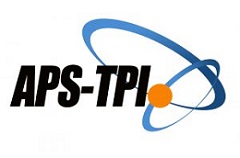Digital Literacy Curriculum in Elementary School
Abstract
Advances in technology and information have an impact on the ease and abundance of various information resources that are obtained digitally and are not limited so that all levels of education need to adapt to technological advances including elementary schools in managing curriculum and learning. The purpose of this research is to find out how digital literacy is in elementary schools. The research method uses a systemic literature review by analyzing 15 relevant articles on digital literacy in elementary schools and 10 article about curriculum digital literacy. Research findings show that the digital literacy curriculum is carried out by integrating digital literacy in all areas of the school. In the implementation of learning, elementary school students still consider the teacher as the only source of information. Therefore, it is necessary to have a collaborative role between teachers, principals and parents in integrating digital literacy in learning and overcoming something unwanted. Digital literacy in elementary schools places more emphasis on media literacy in learning which has an impact on interactive and collaborative learning, one of which is video, stop-motion and social media. Indirectly digital literacy can improve student learning outcomes.
Keywords
Full Text:
PDFReferences
Abdul Jalil Toha, et, all (2021) Exploring Digital Literacy Strategies for Students with Special Educational Needs in the Digital Age. Turkish Journal of Computer and Mathematics Education. Vol.12 No.9 (2021), 3345-3358
Ala-Mutka, K. (2011). Mapping digital competence: towards a conceptual understanding. In Institute for Prospective Technological Studies. Retrieved from http://ftp.jrc.es/EURdoc/JRC67075_TN.pdf%5Cnftp://ftp.jrc.es/pub/EURdoc/EUR doc/JRC67075_TN.pdf
Austin EW, Chen YY, Pinkleton BE, Johnson JQ. (2016) Benefits and costs of cannel one in a middle school setting and the role of media literacytraining. Pediatrics.;117(3):423–33.
Astini, Ni Komang Suni (2020) Pemanfaatan Teknologi Informasi dalam Pembelajaran Tingkat Sekolah Dasar pada Masa Pandemi Covid-19. Jurnal Lampuhyang Lembaga Penjaminan MUtu STKIP Agama Hindu Amlapura. Volume 11Nomor 2 Juli2020, ISSN: 2087-0760.
Ayesha Sadaf & Barbara L. Johnson (2017): Teachers' BeliefsAbout Integrating Digital Literacy Into Classroom Practice: An Investigation Based onthe Theory of Planned Behavior, Journal of Digital Learning in Teacher Education, DOI:10.1080/21532974.2017.1347534To link to this article: http://dx.doi.org/10.1080/21532974.2017.1347534
Batty, Chelsea. Molly Maubach. Justice Steve. Adel Al Batineh (2020) The Effects Of Using Digital Literacy In The Elementary Classroom. The Online Journal of Distance Education and e-Learning, April 2020 Volume 8, Issue 2. www.tojdel.net
Ben Amram, S., Aharony, N., & Bar Ilan, J. (2020). Information literacy education in primary schools: A case study. Journal of Librarianship and Information Science, 096100062093813. doi:10.1177/0961000620938132
Benson, V., & Kolsaker, A. (2015). Instructor Approaches to Blended Learning: A Tale of Two Business Schools. International Journal of Management Education. https://doi.org/10.1016/j.ijme.2015.10.001
Bhatt, I., de Roock R.J., & Adams, J. (2015). Diving deep into digital literacy: emerging methods for research. Language and Education, 29 (6), 477-492.
C.K. Cheung & Wen Xu (2016) Promoting media literacy education in China: a case study of a primary school, International Journal of Adolescence and Youth, 21:2, 215-217, DOI: 10.1080/02673843.2013.821078
Chang, Ching Sui.et. all (2011) Developing And Validating A Media Literacy Self-Evaluation Scale (MLSS) For Elementary School Students. TOJET: The Turkish Online Journal of Educational Technology – April 2011, volume 10 Issue2
De Jesus, I. Q., & Hubbard, J. (2020). Media Literacy for Elementary Education Students: Inquiry Into Fake News. The Social Studies, 1–10. doi:10.1080/00377996.2020.1841717
Delacruz, S (2018) Building Digital Literacy Bridges: Connecting Cultures and Promoting Global Citizenship in Elementary Classrooms through School-Based Virtual Field Trips. TechTrends (2019) 63:428–439 https://doi.org/10.1007/s11528-018-0350-1Dominggo, H.A and Norifumi
Mashiko (2013) Media Literacy Education (MLE) In The Classroom: A Descriptive Case Study Of One Exemplary Japanese Teacher`S MLE Practices, Attitude And Perception Gifu University. Curriculum Development Research 2013.10, Vol.30, No.1, 13-29
Ester van Laar, Alexander J.A.M. van Deursen , Jan A.G.M. van Dijk , Jos de Haan. (2017) The relation between 21st-century skills and digital literacy skills: A systematic literature review. Computers in Human Behavior 72. p577-588.
Falloon, G. (2020). From digital literacy to digital competence: the teacher digital competency (TDC) framework. Educational Technology Research and Development, 68(5), 2449–2472. https://doi.org/10.1007/s11423-020-09767-4
Geer, R., White, B., Zeegers, Y., Wing, A., & Barnes, A. (2017). Emerging pedagogies for the use of iPads in schools. British Journal of Educational Technology, 48(2), 490–498
Hilton, T. (2016). A case study of the application of SAMR and TPACK for refection on technology integration into two social studies classrooms. The Social Studies, 107(2), 68–73
Hinrichsen, Juliet & Coombs, Antony (2013) The five resources of critical digital literacy: a framework for curriculum integration. Research in Learning Technology 2013; 21: 21334 - http://dx.doi.org/10.3402/rlt.v21.21334
Hobbs, R. & Coiro, J. (2016). Everyone Learns From Everyone: Collaborative and Interdisciplinary Professional Development in Digital Literacy. Journal of Adolescent & Adult Literacy 59(6) May/June 2016 doi:10.1002/jaal.502 © 2016 International Literacy Association (pp. 623–629)
Kenton, J., Blummer, B. (2010). Promoting digital literacy skills: examples from the literature and implications for academic librarians. Community & Junior College Librarie, 16 (2), 84-99.
Kim S, Reza M, Seidman E (2019) Improving 21st-century teaching skills: The key to effective 21stcentury learners. Research in Comparative & International Education. 1–19 © sagepub.com/journals-permissions DOI: 10.1177/1745499919829214
Kitchenham, Barbara, and Stuart Charters. 2007. EBSE Technical Report Guidelines for Performing Systematic Literature Reviews in Software Engineering. EBSE Technical Report Nr. EBSE-2007-01.
Kiugu, D. K., Kibaara, D. T., & Wachira, D. R. (2019). Analysis Of Teachers’ Preparedness For Digital Learning Integration In Public Primary Schools In Meru County, Kenya. African Journal of Emerging Issues, 1(9), 69 - 98. Retrieved from https://ajoeijournals.org/sys/index.php/ajoei/article/view/57.
Majlinda Gjelaj, dkk (2020) Digital Technologies in Early Childhood: Attitudes and Practices of Parents and Teachers in Kosovo. International Journal of Instruction, Vol.13, No.1.
Martin, A. (2006). A European framework for digital literacy. Nordic Journal of Digital Literacy,2 (1), 151 – 161. Retrieved from http://www.idunn.no/file/pdf/33191479/a_european_framework_for_digital_literacy.p df
Martin, A., & Grudziecki, J., (2006). DigEuLit: concepts and tools for digital literacy development. Innovation in Teaching and Learning in Information and Computer Sciences, 5 (4), 1-19.
Moher, David et al. 2009. “Preferred Reporting Items for Systematic Reviews and Meta Analyses : The PRISMA Statement.” 6(7)
Nelson, Kiara; Courier, Marcy; and Joseph, Gilbert W. (2011) "An Investigation of Digital Literacy Needs of Students," Journal of Information Systems Education: Vol. 22 : Iss. 2 , 95-110.Available at: https://aisel.aisnet.org/jise/vol22/iss2/2
Ng, W. (2012). Can we teach digital natives digital literacy?. Computers & Education, 59, 1065-1078.
Nuroh, Ermawati Z. Vevy Liansari (2017) Digital Age Literacy in Elementary School. Advances in Social Science, Education and Humanities Research (ASSEHR), volume 125 1st International Conference on Intellectuals' Global Responsibility (ICIGR 2017).
Ola Berge (2017) Rethinking Digital Literacy in Nordic School Curricula. Nordic Journal of Digital Literacy 01-02 / 2017 (Volum 12)
Prensky, M., (2001). Digital natives, digital immigrant. On the Horizon, 9 (5). Retrieved from http://www.marcprensky.com/writing/Prensky%20%20Digital%20Natives,%20Digital%20Immigrants%20-%20Part1.pdf
Schwab, Klaus. (2016). The Fourth Industrial Revolution. Crown Business.
Shively, K., & Palilonis, J. (2018). Curriculum Development: Preservice Teachers’ Perceptions of Design Thinking for Understanding Digital Literacy as a Curricular Framework. Journal of Education, 002205741881112. doi:10.1177/0022057418811128
Shopova, T. (2014). Digital literacy of students and its improvement at the university. Journal on Efficiency and Responsibility in Education and Science, 7(2), 26–32. https://doi.org/10.7160/eriesj.2014.070201
Susilawati, Samsul; Chakim, Abdulloh; Hambali, Muh; Islamy, M Irfan; and Rahmaniah, Aniek (2021) "The Urgency of Digital Literacy for Generation Z in Improving Learning of Islamic Religious Education". Library Philosophy and Practice (e-journal). 5143. https://digitalcommons.unl.edu/libphilprac/5143
Syahid, AA. I Isrokatun and D Nugraha (2019) ICT training curriculum for primary school teachers. IOP Conf. Series: Journal of Physics: Conf. Series 1318 012147 IOP Publishing. doi:10.1088/1742-6596/1318/1/012147
Tem Sun, Koun. Chun Huang Wang. Ming Chi Liku (2016) Stop-motion to Foster Digital Literacy in Elementary School. Comunicar, n. 51, v. XXV, 2017 Media Education Research Journal. ISSN: 1134-3478; e-ISSN: 1988-3293. doi: https://doi.org/10.3916/C51-2017-09
Tenku Shariman, Tenku Putri Norishah., Norizan Abdul Razak, Nor Fariza Mohd. Noor (2012) Digital Literacy Competence for Academic Needs: An Analysis of Malaysian Students. Procedia - Social and Behavioral Sciences 69. p 1489 – 1496
Ulaş AH, Epçaçan C, Koçak B (2012) The concept of “Media Literacy” and an evaluation on the necessity of media literacy education in creating awareness towards Turkish language. Procedia-Social and Behavioral Sciences. 2012;31:376–84.
Van Den Beemt, A., Thurlings, M., & Willems, M. (2019). Towards an understanding of social media use in the classroom: a literature review. Technology, Pedagogy and Education, 1–21. doi:10.1080/1475939x.2019.1695657
Wen, J. R., & Shih, W. L. (2008). Exploring the information literacy competence standards for elementary and high school teachers. Computers & Education, 50(3), 787–806. doi:10.1016/j.compedu.2006.08.011.
C.K. Cheung & Wen Xu (2016) Promoting media literacy education in China: a case study of a primary school, International Journal of Adolescence and Youth, 21:2, 2.
Yilmaz, O. (2015). The effects of “live virtual classroom” on students’ achievement and students’ opinions about “live virtual classroom” at distance education. Turkish Online Journal of Educational Technology, 14(1), 108–115.
Yuniawatika & Kurniawan, Taufiq (2018). The Urgency of Digital Literacy for Students in Disruption Era. Advances in Social Science, Education and Humanities Research, volume 285. International Conference on Education and Technology (ICET 2018)
Refbacks
- There are currently no refbacks.





.png)













